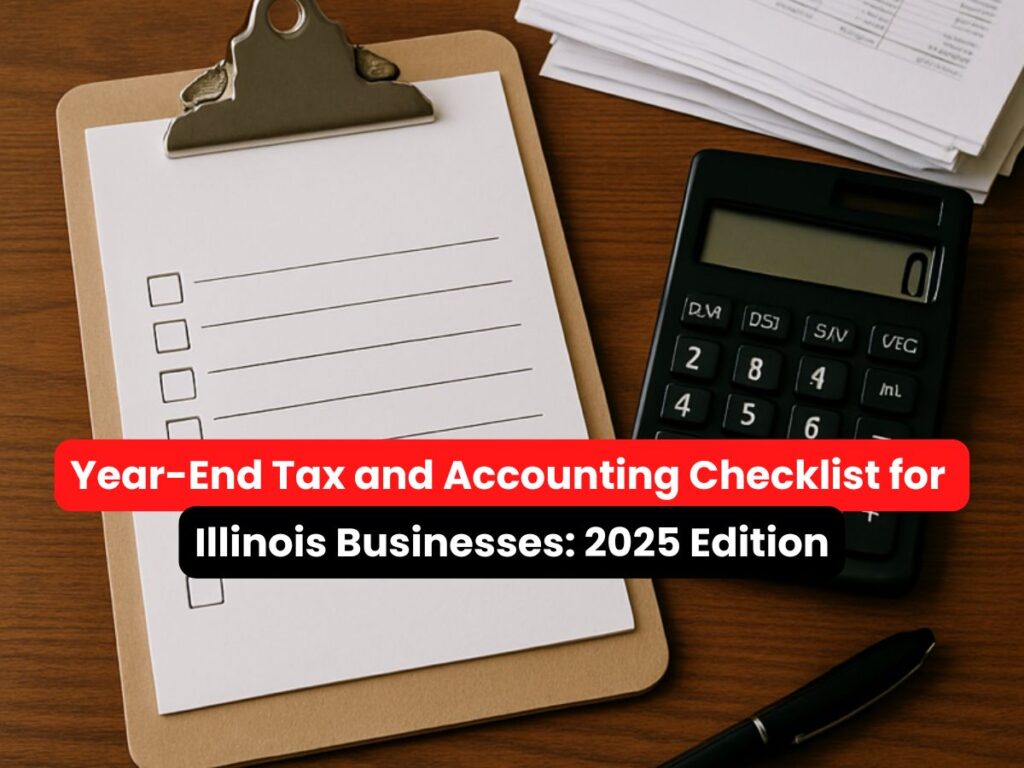Having a solid real estate portfolio is a great way to grow your wealth, but how you manage your finances can make or break your investments. In 2025, with new regulations, changing markets, and the explosion of digital tools, accurate accounting has become more important – and more challenging – than ever. Whether you’re an investor, a developer, or a landlord, understanding key accounting pitfalls and how to avoid them will help you safeguard your assets, meet your goals, and build a future-proof real estate portfolio.
In this guide, we’ll break down the latest trends in real estate accounting, common mistakes people make, and how real estate bookkeeping services can help you stay ahead of the curve. We’ve used everyday language-no complicated tech talk or accounting jargon-so you can take action right away.
The High Stakes of Real Estate Accounting in 2025
Why Accounting Mistakes Matter
Real estate is about more than just buying, selling, or renting properties-it’s about maximizing returns while protecting yourself from risk. Statistics show that even small bookkeeping errors can lead to overspending, missed tax deductions, regulatory headaches, and missed opportunities for growth.
In 2025, things have become even trickier because:
- New laws and tax codes require up-to-date reporting.
- Digital filing is now the standard.
- Investors and developers need faster, clearer access to their financials to compete in a fast-paced market.
- Lenders and partners expect transparent, accurate records before doing business.
In short: The old ways of “winging it” or using spreadsheets could end up costing you dearly.
Changing Regulations-What’s New in 2025?
Key Regulatory Updates Shaping Real Estate Bookkeeping
This year, several new rules and updates are now affecting property owners, investors, and developers, including:
- Mandatory Digital Recordkeeping: All real estate businesses must use digital systems for reporting transactions and expenses, making paper-only records a thing of the past.
- Stricter Annual and Quarterly Reports: The government has ramped up requirements for more detailed, timely financial statements.
- Tighter Anti-Money Laundering Standards: There’s now closer tracking of large transfers and cross-border transactions.
- Updated Deduction and Depreciation Rules: Several tax codes have changed what counts as a deductible expense versus a capitalized improvement.
Example Mistakes to Watch For:
- Submitting reports using old, non-compliant software.
- Missing new income or expense categories in your records.
- Confusing maintenance expenses with capital improvements.
- Ignoring these changes could mean missed deductions, late filing fees, or even an IRS audit. This is one area where hiring a bookkeeper for your real estate company can pay for itself many times over.
Market Dynamics-Volatility and Opportunity in 2025

2025 Market Trends That Affect Your Books
In 2025, the real estate market is more unpredictable:
- Interest Rate Fluctuations: Even a small rise changes loan payments, refinancing, and budget forecasts.
- Rising Home Values: Property prices-especially in growing suburbs and secondary cities-continue climbing.
- High Rental Demand: Landlords are seeing more turnover and lease changes, making detailed rent tracking more important.
- Faster Transactions: Deals close quicker, which means less time to “catch up” on your bookkeeping.
Common Pitfalls:
- Not updating property values or rental income schedules, leading to inaccurate financial snapshots.
- Failing to record fair value adjustments-important for reporting and attracting new partners or Losing track of expenses as you try to manage multiple properties or projects without support from real estate bookkeeping services.
Technology Trends-Automation, Security, and Smarter Bookkeeping
How Technology is Changing Real Estate Investment Accounting
This year, technology is both a blessing and a potential stumbling block:
- Cloud Bookkeeping Software: Platforms like QuickBooks Online and Xero allow for real-time updates, mobile access, and easy sharing with your accountant or CPA.
- Automation: Automatically import transactions from your bank or credit card. This makes tracking faster, but it only works if your accounts are set up correctly.
- Data Security: If your finances aren’t secured with strong passwords and regular backups, a computer virus or hack could set you back months.
- Error Alerts: New apps and systems can spot duplicate entries, missing invoices, or strange charges. But if you ignore these alerts, problems can still pile up.
Mistakes to Watch Out For:
- Using outdated or unsupported software that isn’t equipped for 2025’s reporting needs.
- Letting automation rules misclassify transactions (for example, rent income showing up as a refund).
- Failing to regularly back up your data.
Forward-thinking investors and developers work with firm partners who keep up with technology and know how to tailor real estate bookkeeping services to your unique portfolio.
Top Real Estate Accounting Mistakes to Avoid in 2025

Here’s a quick look at the most common (and costly) mistakes we see in real estate accounting today:
- Misclassifying Repairs vs. Capital Improvements: Repairs are routine and deductible in the year you pay for them. Improvements, like a new roof, are added to your property’s value and must be depreciated over time. Mix these up, and you risk an audit or lost deductions.
- Not Reconciling Accounts Monthly: If you wait until year-end, errors go unnoticed and correcting them becomes complicated and stressful.
- Falling Behind on Expense Tracking: Forgetting to log invoices means missed write-offs and a blurry picture of your profits and losses.
- Overlooking Depreciation Schedules: Real estate investments offer large tax benefits through depreciation, but only if you track schedules carefully.
- Mixing Personal and Business Accounts: Using one account for everything muddies your finances and can cause big issues during tax time.
- Ignoring Tax Code Changes: Tax laws change fast these days; missing updates can mean overpaying the IRS or facing penalties.
- Manual Data Entry Overload: Typing everything by hand increases the risk of mistakes and eats up valuable time.
- Skipping Digital Compliance Steps: Not filing digital records as required in 2025 can result in delays or fines.
- Weak Security Practices: Not protecting your digital data puts your business at risk for theft or loss.
- Not Retaining a Professional Bookkeeper or CPA: DIY methods might seem like a way to save money, but in real estate, mistakes are expensive. Qualified professionals catch errors before they become costly problems.
How Proactive Companies Are Safeguarding Their Portfolios
Winning Habits from Top Real Estate Firms
What separates thriving real estate businesses from those that struggle? The best are future-proofing their portfolios by:
- Monthly Internal Reviews: Scheduling regular account checks, not relying solely on annual reviews.
- Investing in Software: Using the latest, industry-specific tools for bookkeeping for real estate developers and investors.
- Professional Oversight: Having a certified CPA or trained bookkeeper review financial statements, especially before major decisions.
- Ongoing Training: Team members stay up to date with the latest accounting rules and technology.
- Time-Stamped Digital Records: Every financial move is documented, so there are no gaps during an audit.
- Clear Separation of Personal and Business Finances: This avoids confusion and lets you see exactly how your investments are performing.
Quick DIY Checklist:
- Are my books fully digital and backed up securely?
- Do I review financial statements every month?
- Have I updated my software to match 2025’s rules?
- Are personal and business accounts (and credit cards) separated?
- Is a professional regularly reviewing my financials?
If you’re unsure about any item above, it may be time to bring in outside help.
Conclusion
Today’s real estate world changes quickly, but one thing remains the same: solid accounting fuels smart investments and protects your future. Don’t let common real estate accounting mistakes drag down your returns-or worse, put you at odds with the IRS or your business partners. By staying updated, organized, and proactive (with a little help from the professionals when needed!), you can focus on growing your portfolio knowing your books are in good hands.
About Us: Chicago’s Local Real Estate Accounting Experts-Aced Accounting

At Aced Accounting, we understand the unique challenges that come with real estate investment accounting. From managing your monthly bookkeeping to staying ahead of rapidly changing regulations, we make sure that your business is set up for success now and in the future.
Why Choose Us?
- CPA-Certified: Led by Ethan, a certified public accountant, we know the ins and outs of both tax regulations and bookkeeping for real estate developers and investors.
- Real Estate Focus: We specialize in real estate bookkeeping services, so you get advice and strategies that match your business-not generic tips.
- Transparent Pricing: Clear, upfront fees-starting as low as $149 per month-mean you won’t face surprise bills.
- Cutting-Edge Tools: We use QuickBooks Online, Xero, and other trusted digital platforms to keep your books accurate, secure, and always accessible.
- Comprehensive Service: From payroll to tax filing to LLC formation, our support grows with your business.
Our Services
- Real estate bookkeeping for investors, landlords, and developers
- Transaction categorization and reconciliation
- Property income and expense tracking
- Audit prep and ongoing compliance
- Business consulting and entity formation
- Personalized tax planning and filing
Ready to Future-Proof Your Portfolio?
Don’t let accounting mistakes stop your real estate business from reaching its full potential. Schedule a free consultation with our Chicago-based team today. Let’s make your bookkeeping strong, secure, and ready for anything 2025 brings.
With Aced Accounting at your side, you can focus on closing deals and building wealth-while we make sure the numbers add up, every time.








